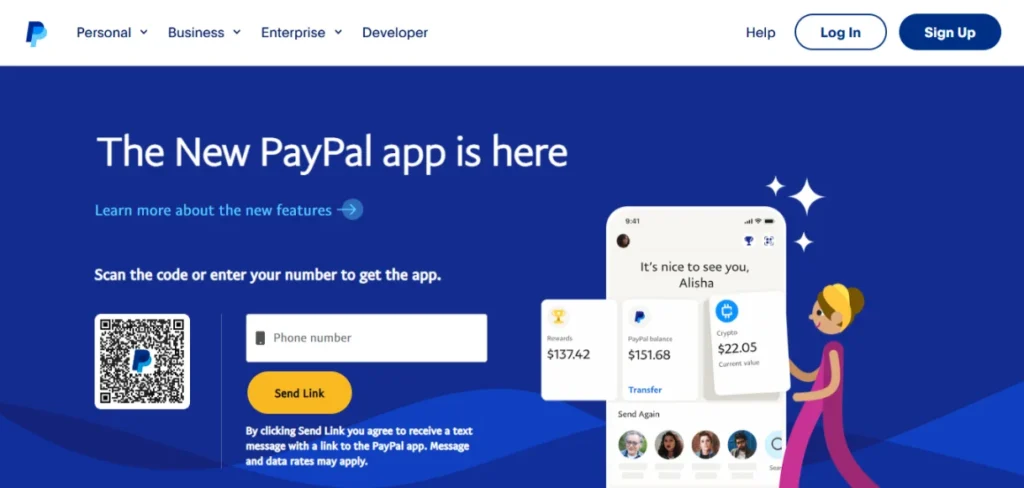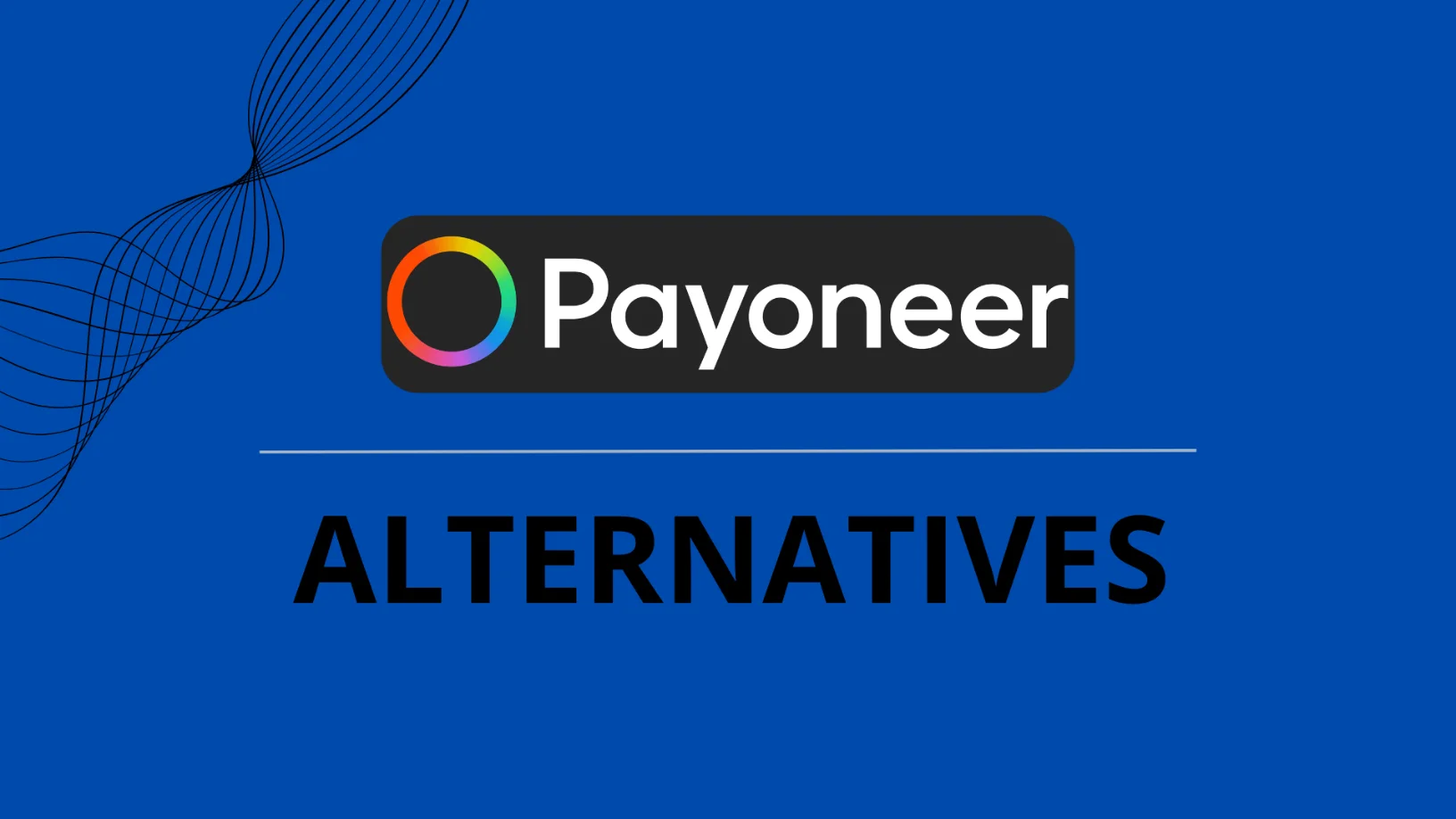When it comes to global transactions, Payoneer has long been a popular choice. Its features, like low fees, multi-currency accounts, and seamless integration with marketplaces, have made it a go-to solution for freelancers, remote workers, and businesses. However, Payoneer isn’t the perfect fit for everyone, and exploring alternatives might lead you to solutions that better match your specific needs.
In this article, we’ll dive into some of the best Payoneer alternatives, highlight their features, pros, and cons, and offer insights into why they might work better for certain scenarios.
Quick Navigation ↓
Why Look for Payoneer Alternatives?
Before diving into the alternatives, let’s address the reasons why some users look for other options:
High Fees for Certain Transactions: Payoneer charges fees for currency conversions and withdrawal processes, which can add up for frequent users.
Limited Coverage in Some Regions: While Payoneer is globally recognized, its services may not be available in all countries.
Account Limitations: Some users have reported sudden account freezes or limitations without prior notice, which can disrupt business operations.
Specific Needs: Businesses or freelancers may require specialized features that Payoneer does not offer, such as advanced invoicing tools or more flexible payment options.
Top Payoneer Alternatives:
1. Wise (Formerly TransferWise)

Best for: Low-cost international transfers
Why Choose Wise?
Wise is highly regarded for its clear pricing model and the use of real-time exchange rates without hidden markups. Unlike Payoneer, it doesn’t inflate currency conversion rates, which can save you a significant amount on international transactions.
Key Features:
- Real-time currency exchange rates with no hidden fees
- Multi-currency account supporting over 50 currencies
- Easy integration with bank accounts and credit cards
Pros:
- Competitive fees
- User-friendly interface
- Highly secure and regulated
Cons:
- Limited to sending and receiving payments (not a full-fledged business account)
- No marketplace integrations
Personal Note: I’ve used Wise several times for transferring payments internationally, and the real-time rate notifications and savings compared to traditional banks were a game-changer for me.
2. PayPal

Best for: Businesses needing a trusted name for global payments
Why Choose PayPal?
PayPal is one of the oldest and most trusted platforms for online payments. It offers robust business tools, including invoicing, recurring payments, and integration with various e-commerce platforms.
Key Features:
- Support for over 200 countries and 25 currencies
- Easy integration with online marketplaces
- Buyer and seller protection
Pros:
- Widely accepted globally
- Advanced invoicing and payment features
- Strong security measures
Cons:
- Higher transaction and currency conversion fees
- Account limitations can occur unexpectedly
Personal Note: While PayPal’s fees are higher, its reliability and widespread acceptance make it an indispensable backup option for me when other platforms aren’t available.
3. Revolut Business

Best for: Small businesses and freelancers looking for banking-like features
Why Choose Revolut?
Revolut is an innovative financial app offering features beyond basic transactions, such as expense management, budgeting, and corporate cards.
Key Features:
- Free and paid business accounts
- Multi-currency accounts and competitive exchange rates
- Corporate cards for team expense management
Pros:
- Budget-friendly plans for startups
- Advanced expense tracking features
- Supports cryptocurrency transactions
Cons:
- Limited availability outside Europe and the US
- Some advanced features locked behind premium plans
Personal Note: I particularly appreciate Revolut’s detailed transaction insights—it’s like having a financial advisor in your pocket.
4. Stripe

Best for: Businesses handling online payments
Why Choose Stripe?
Stripe is an excellent choice for developers and businesses looking to integrate customized payment solutions. Its API-driven platform offers flexibility for advanced payment processing.
Key Features:
- Support for over 135 currencies
- Customizable checkout process
- Tools for subscription management and invoicing
Pros:
- Highly customizable for developers
- Robust reporting tools
- Transparent pricing
Cons:
- Requires technical expertise to set up
- Fees for non-standard features
Personal Note: For a project requiring recurring billing, Stripe’s flexibility was invaluable. However, it took me a while to navigate its developer-centric setup.
5. Skrill

Best for: Freelancers and businesses seeking low fees for specific transactions
Why Choose Skrill?
Skrill is known for its simplicity and ease of use. It’s a popular choice among online gamers and traders but also works well for businesses and freelancers.
Key Features:
- Support for quick international transfers
- Cryptocurrency transactions
- Prepaid card option for instant access to funds
Pros:
- Fast transfers with competitive fees
- Simple user interface
- Integration with trading platforms
Cons:
- Limited customer support
- Higher fees for some withdrawal methods
Personal Note: I found Skrill’s prepaid card feature useful when traveling internationally, as it offered immediate access to my funds without depending on local banking systems.
How to Choose the Right Alternative
When selecting a Payoneer alternative, consider the following factors:
Transaction Fees: Review the fee structure, especially for currency conversions and withdrawals.
Coverage and Availability: Ensure the platform supports your country and preferred currencies.
Features: Look for features that align with your needs, such as invoicing, marketplace integration, or advanced security.
Ease of Use: Choose a platform with an intuitive interface and strong customer support.
Business Needs: If you’re running a business, prioritize platforms with robust tools for scaling and managing payments.
In Summary
While Payoneer remains a solid choice for many, these alternatives offer unique features that might better suit your requirements. For instance, Wise is unbeatable for low-cost transfers, PayPal ensures global acceptance, and Revolut offers modern financial tools for businesses.
Personally, I’ve found value in using a combination of these platforms depending on the scenario. For regular payments to international freelancers, Wise is my go-to, while PayPal and Stripe come in handy for e-commerce projects. Exploring these options can help you streamline your global transactions and save on fees.
At WebiKnock, we’re always exploring tools and strategies to help businesses thrive. Which alternative resonates with you? Feel free to add your thoughts or experiences in the comments below.








